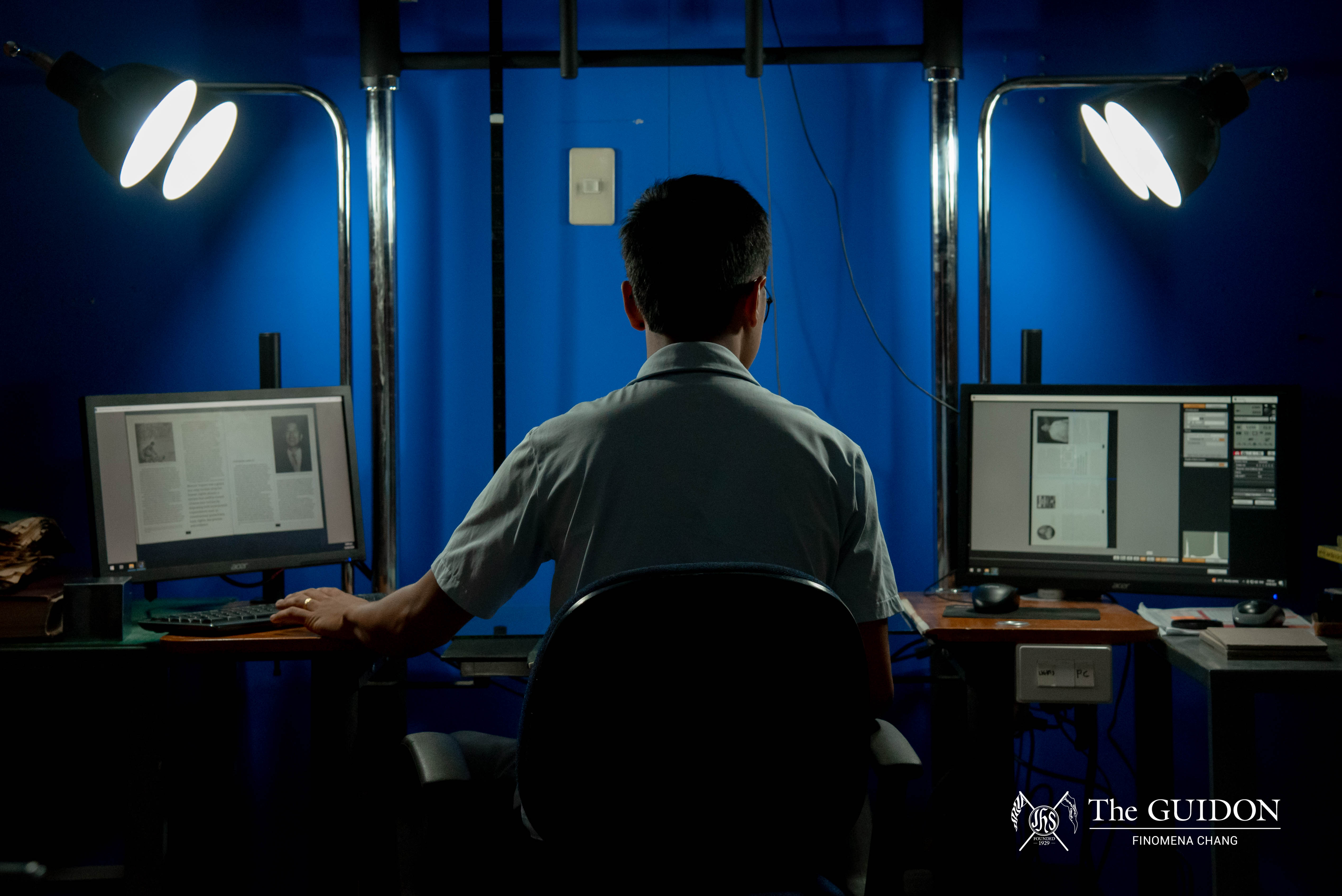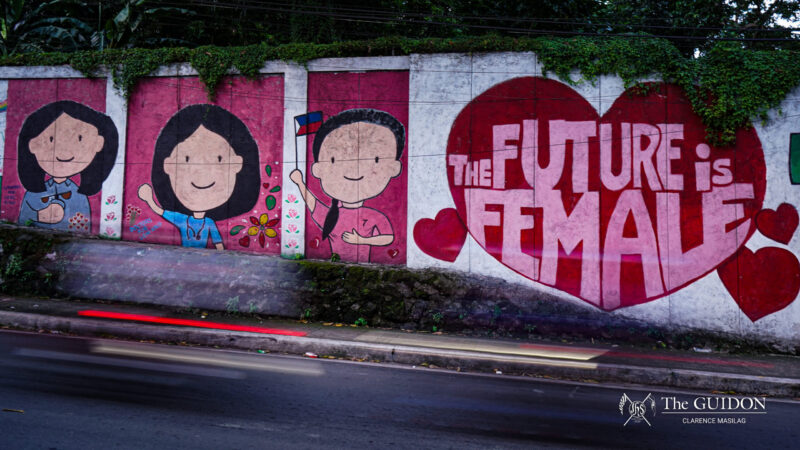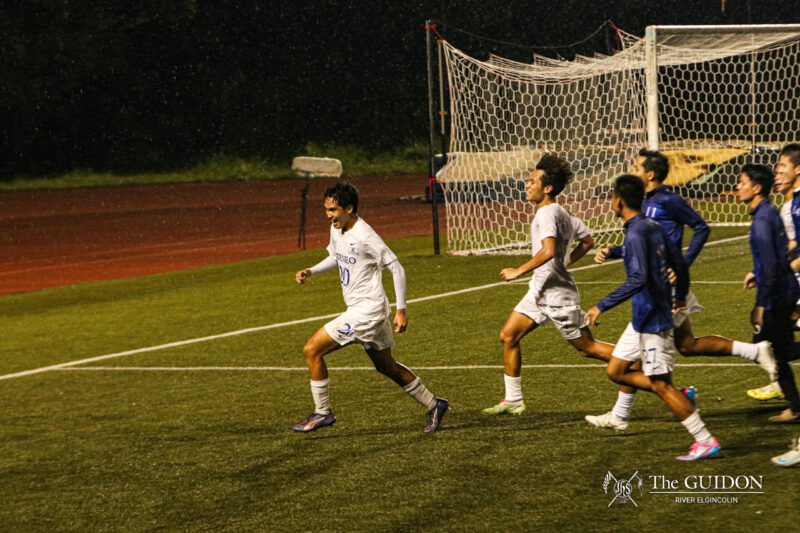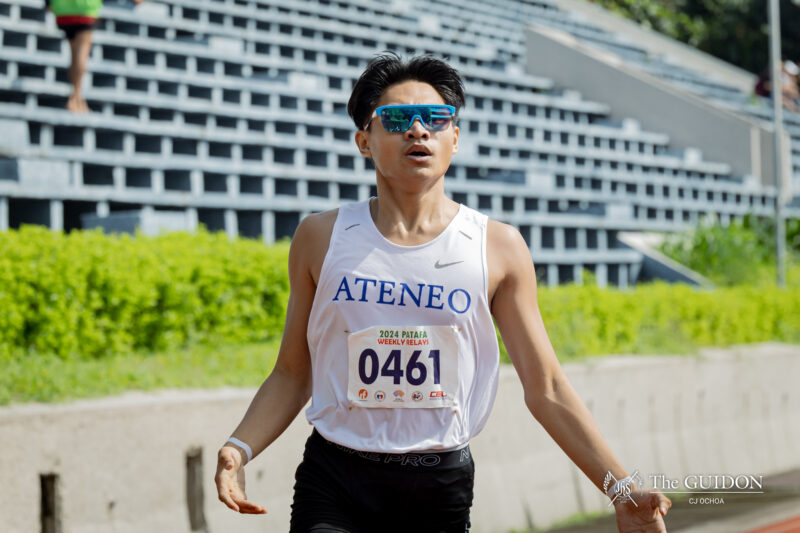INDEPENDENCE DURING college is often a new undertaking for young adults, having to tackle new responsibilities that come with living alone. For student-parents, however, another responsibility falls upon their shoulders, as this newfound independence is also coupled with their child’s dependency on them. As balancing these two roles is already challenging enough, the situation is further exacerbated by cultural and societal pressures.
In the religious Philippine landscape, a child is often considered a blessing. However, when that child is born to a young, unmarried student, the situation is often met with stigma and whispered judgments. The weight of these combined challenges takes a significant toll on the well-being of student-parents, raising concerns about the adequacy of support they receive, if any.
Baby steps
For Amanda Morente (3 AB LIT (ENG)), support during her pregnancy and parenthood came in the form of her family and friends.
During her second trimester, Morente shared how her father went out of his way to satisfy her food cravings. Her mother, on the other hand, was her biggest supporter. When Morente had to quit her mental health medications to protect unborn Lucia, her mother was there every step of the way.
“It was a big shift, so my mood really dipped, and it was so hard,” Morente recalls. “But my mom has been so understanding. […] I remember I was really just holding her hand and she’d be like, ‘It’s okay. It’s okay. Do it for Lucia.’”
However, experiencing persistent bouts of sickness during her first trimester pushed Morente to take a Leave of Absence (LOA) from her studies. While she shared that applying for a LOA was an easy process, she admitted that she wrestled with revealing the true reason for her withdrawal from the University. Such apprehension stemmed from her high school experience wherein a student was expelled for the very same situation.
This hesitation underscores a broader issue: the University’s resources for student-parents are uncertain, both from Morente’s perspective and the standpoint of the Loyola Schools Office of Guidance and Counseling (LSOGC). According to LSOGC Guidance Counselor Analyn Roquita Ripotola, PhD, RGC, very few concerns relating to student-parents appear in the Office’s research into community needs.
Fellow LSOGC Guidance Counselor and Psychometrician Lito Nillo, RGC, RPm emphasizes that further research into student-parents’ concerns and voluntary disclosure are needed to establish a dedicated program for them. As Ripotola notes, student-parents would then be considered a “special population.”
Nevertheless, having been made more aware of this community’s presence and needs, Nillo and Ripotola reassure that the LSOGC is committed to fostering a compassionate and inclusive community.
While recognizing the stigma that may hinder student-parents from coming forward, the Office continues to offer necessary support services, such as helping in filing for LOAs and underloading through coordinating with the appropriate offices. Aside from counseling and psychotherapy, they also aid in bridging the gap with professors by reaching out to them to extend their understanding to student-parents.
Floaties for student-parents
Although parenthood marks a new chapter in life, births outside of marriages are looked down upon within Roman Catholic beliefs, which hold that sexuality must be unitive and procreative. Oftentimes, discussions surrounding sex focus on chastity rather than comprehensive education, thus creating a stigma surrounding those who do not practice abstinence.
During the celebration of Lucia’s birth, Morente recalls netizens criticizing her decision as a student. Due to the stigma surrounding student-parents, she is faced with the anxiety of possible alienation from her peers after returning from her LOA. On top of her worries, she struggles with juggling the responsibilities of being a parent and a student, leading her to lose sleep and free time often.
Recognizing the stigma, the University has made strides to address this concern by integrating topics on sexuality and relationships into its curriculum. These include courses such as the Introduction to Ateneo Culture and Tradition Program and Understanding the Self.
On the national level, the Commission on Higher Education (CHED) and the Department of Education (DepEd) have advocated for the implementation of Comprehensive Sex Education (CSE). This initiative aims to educate the youth with a holistic approach to sexuality and empower them to make responsible decisions.
Despite the initiative, CHED and DepEd remain firm in integrating CSE in the current curriculum rather than creating a separate subject.
In addition to educational reforms, efforts toward protecting individuals from gender-based discrimination are reflected through the University’s zero-tolerance policies and the Philippines’ Reproductive Health Law.
However, while discussions surrounding sexuality have made their way into classrooms, the country has a long, unwinding path in undertaking a standardized CSE. Engaging in such discourse can ease the stigma and support for student-parents.
Balancing the seesaw
With the call for CSE lacking sufficient action, the stigma and its repercussions on student-parents continue to grow unrestrained. While University initiatives presently exist, calls for programs and policies specific to student-parents’ needs remain.
In particular, the transition back to their studies may pose significant challenges. Ripotola recalls a student who had to choose between continuing their studies and parenting due to a lack of familial support. Subsequently, behind Morente’s strong support system are difficulties in balancing her responsibilities as a student and a parent.
For instance, one of Morente’s biggest concerns while studying is her access to her daughter in between classes. After her return to the Ateneo, Morente would call to Lucia through a nanny camera during breaks. Though she is able to leave Lucia with her family, she wishes for an on-campus daycare service.
Upon observation of other universities’ childcare spaces, Nillo discussed the possibility of opening the Loyola Schools Childcare Place to student-parents. “[A childcare space could] destigmatize […] student-parents [and allow them to] study productively with their children in school,” Nillo shared.
Beyond the University, the Department of Social Welfare and Development and the Commission on Population and Development have launched a program to support teenage parents from the lowest socioeconomic bracket by providing access to health services and aiding them in their return to school.
Aside from these programs, Morente believes that continuously ensuring safe spaces for discussion will make student-parents feel more welcome and seen in places like the Ateneo. With the University’s efforts of destigmatization, student-parents are given more leeway to cement themselves as a part of the community.
Although support begins with loved ones, prevailing stigma surrounding student-parents and sex education urges educational and governmental institutions to reassess the current policies and curriculum meant to uplift the youth.







